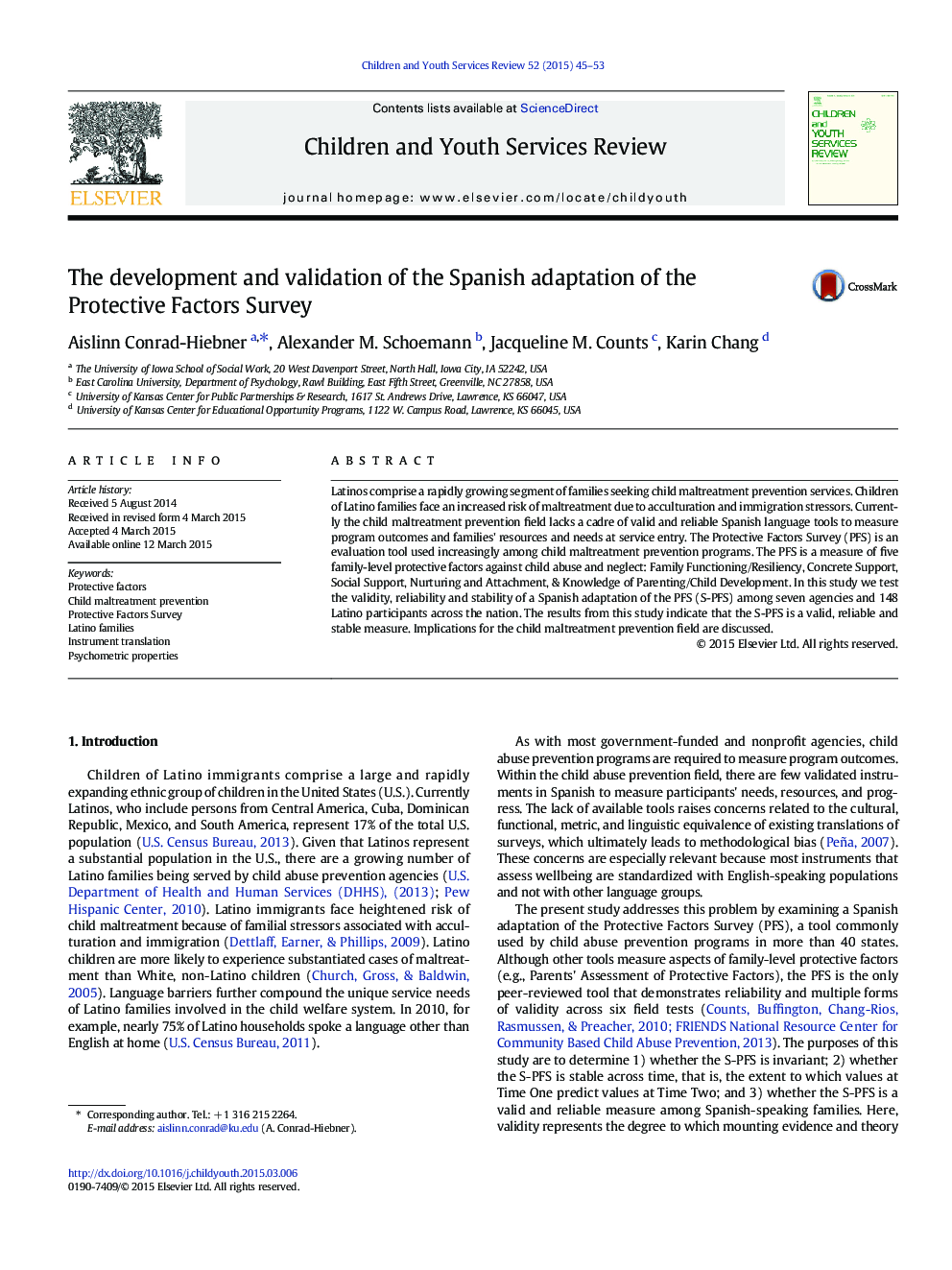| Article ID | Journal | Published Year | Pages | File Type |
|---|---|---|---|---|
| 346000 | Children and Youth Services Review | 2015 | 9 Pages |
•We translated the S-PFS using forward/backward translation techniques.•We examined the psychometric properties of the Spanish adaptation of the PFS.•We conducted our analyses with structural equation modeling.•The S-PFS is reliable and stable from Time One to Time Two.•The S-PFS displays adequate content, concurrent, predictive and criterion validity.
Latinos comprise a rapidly growing segment of families seeking child maltreatment prevention services. Children of Latino families face an increased risk of maltreatment due to acculturation and immigration stressors. Currently the child maltreatment prevention field lacks a cadre of valid and reliable Spanish language tools to measure program outcomes and families' resources and needs at service entry. The Protective Factors Survey (PFS) is an evaluation tool used increasingly among child maltreatment prevention programs. The PFS is a measure of five family-level protective factors against child abuse and neglect: Family Functioning/Resiliency, Concrete Support, Social Support, Nurturing and Attachment, & Knowledge of Parenting/Child Development. In this study we test the validity, reliability and stability of a Spanish adaptation of the PFS (S-PFS) among seven agencies and 148 Latino participants across the nation. The results from this study indicate that the S-PFS is a valid, reliable and stable measure. Implications for the child maltreatment prevention field are discussed.
